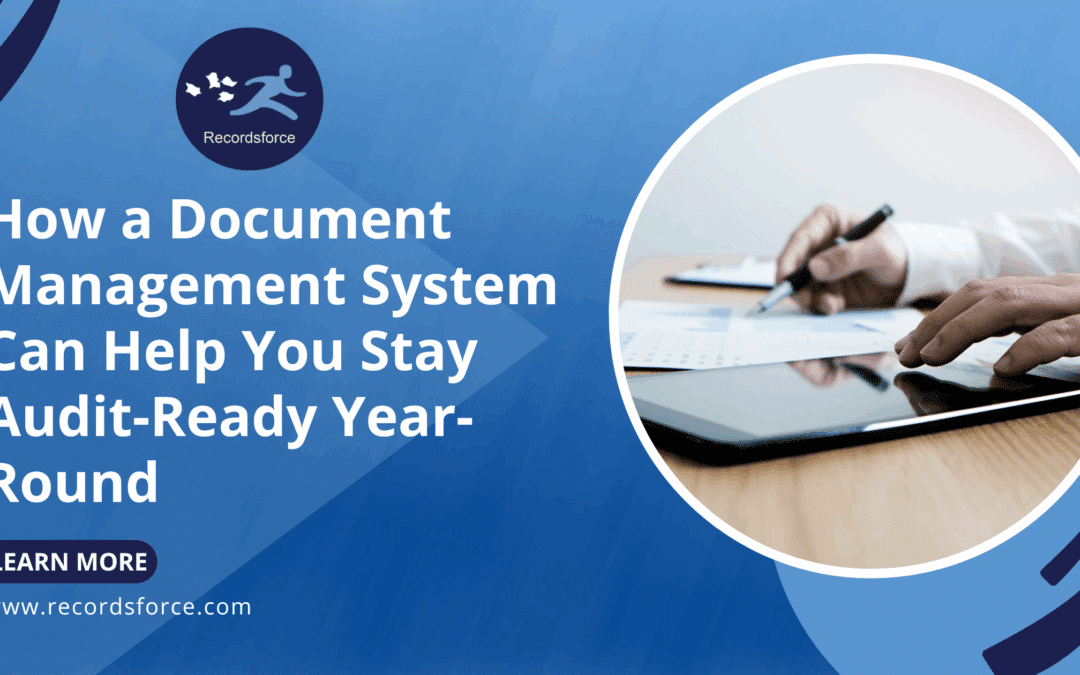For many organizations, the word audit triggers a sense of stress and urgency. The scramble to gather documents, verify compliance, and track down approvals often feels like a race against the clock. But it doesn’t have to be that way.
A Document Management System (DMS) takes the panic out of audits by keeping your records organized, secure, and accessible, all year long. Instead of preparing for an audit only when the deadline looms, your business can operate in a state of continuous audit readiness.
Here’s how a DMS helps you stay compliant, reduce risk, and simplify the audit process.
Why Audit Readiness Matters
Audits aren’t just for regulated industries like healthcare, finance, or government contracting. Whether it’s internal reviews, client audits, tax season, or regulatory checks, organized document control is critical to proving compliance, maintaining trust, and avoiding penalties.
When documents are stored in multiple locations, like on desktops, shared drives, filing cabinets, or email inboxes, getting audit-ready becomes time-consuming and error-prone.
5 Ways a Document Management System Keeps You Audit-Ready
1. Centralized, Organized Document Storage
A DMS provides a single, secure location for all your important documents. No more wondering which version is correct or where a contract was filed. With structured folder systems, tags, and search functionality, everything is exactly where it should be.
2. Access Controls and Permissions
Control who can view, edit, or delete documents. With role-based permissions, sensitive files stay protected, and you can demonstrate to auditors that data access is appropriately restricted.
3. Version Control and Audit Trails
Never lose track of document changes. A DMS automatically tracks revisions and maintains full version histories. Detailed audit logs show who accessed, modified, or approved documents and when, giving you clear documentation trails for compliance.
4. Automated Retention and Disposal Policies
Stay on top of document retention schedules without manual effort. A DMS can automate retention policies based on document type, ensuring that files are kept as long as required and securely deleted when they’re no longer needed.
5. Easy Document Retrieval and Reporting
Quickly find the documents you need during an audit with keyword searches, metadata tags, or filtered reports. Many DMS platforms allow you to export document lists, user access logs, and other key data to simplify audit preparation.
Be Proactive, Not Reactive
The key to staying audit-ready isn’t scrambling to prepare at the last minute, it’s building compliance into your everyday workflows. A document management system empowers your organization to:
- Stay organized
- Reduce compliance risks
- Save time and resources during audits
- Maintain confidence with clients, partners, and regulators
Ready to Simplify Your Audit Process?
Don’t let audits disrupt your business. Discover how a Document Management System can help you stay organized, compliant, and always ready.

